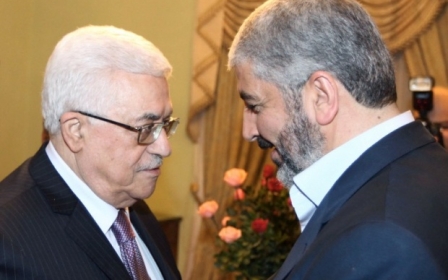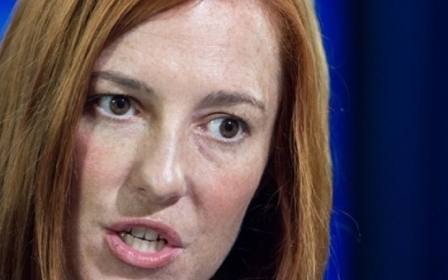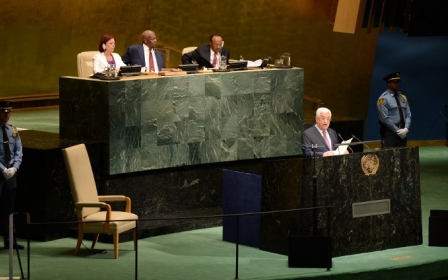Palestinians risking US aid over UN bid: Abbas

The Palestinians are under heavy pressure to drop plans to seek a UN Security Council resolution to end Israel's occupation, risking $700 million a year in US aid, president Mahmud Abbas has said.
But Abbas vowed in remarks late Tuesday to press ahead with the move, warning that if it were shot down by a US veto, he would seek to join the International Criminal Court.
The Palestinians, who won the upgraded rank of UN observer state in 2012, have long threatened to petition the ICC over alleged Israeli war crimes, but have so far held back due to US and European pressure.
"The Palestinian leadership is coming under heavy pressure not to go to the Security Council or join international organisations, and the main pressure relates to aid," he said, indicating that the $700 million (555 million euros) in US aid was at stake.
"Relations with the US administration are strained... and it is not in our interest to worsen it. But at the same time, we cannot go back on our decision."
In a defiant speech to the UN General Assembly Friday, Abbas ruled out any return to the failed format of peace talks, demanding an end to the occupation and accusing Israel of waging a "war of genocide" in Gaza.
The State Department described Abbas's remarks as "offensive" and "deeply disappointing."
Many Palestinians in Gaza feel that priority should be given to demanding justice for their victims.
"This man [Abbas] did not do anything for the people of Gaza during the Israeli war; now he has a chance to do the minimum [by insisting to go to the ICC]," a Palestinian living in the strip, who wished not to be identified, told MEE.
"Let the Americans cut their aid, it's not more valuable than justice," he said, adding that a proper "compensation should cover the costs of losing aid," arguing that going to the ICC makes sense financially as well as ethically.
Abbas said talks were being held with Arab and other countries ahead of a vote within three weeks on a draft resolution spelling out an Israeli withdrawal from lands it seized in 1967 and the establishment of a Palestinian state with its capital in east Jerusalem.
Palestinian foreign minister Riyad al-Malki told a press conference Wednesday that all the Arab countries at the UN had already "adopted the resolution... with very minor alterations" and that Jordan, which represents the Arab group in the Security Council, would present it within three weeks for a vote.
In the meantime, the Palestinians would continue to lobby "Europeans, Africans, Latin America and the non-aligned countries" he said.
But Abbas said he had no guarantee of obtaining the necessary nine votes from the 15-member Security Council, and that there was a "strong possibility" it would be torpedoed by a US veto.
In such a case, the Palestinians would immediately ratify the Rome Statute, the founding treaty of the ICC, which has the jurisdiction to prosecute individuals on charges of genocide, war crimes and crimes against humanity.
"It is important to establish an end-date for the occupation, whether that's one year, two years or three," he said, pledging that after setting a date he would "immediately resume negotiations" with Israel.
"We will not engage in any negotiations which do not set down a timetable for realising our objectives."
New MEE newsletter: Jerusalem Dispatch
Sign up to get the latest insights and analysis on Israel-Palestine, alongside Turkey Unpacked and other MEE newsletters
Middle East Eye delivers independent and unrivalled coverage and analysis of the Middle East, North Africa and beyond. To learn more about republishing this content and the associated fees, please fill out this form. More about MEE can be found here.




